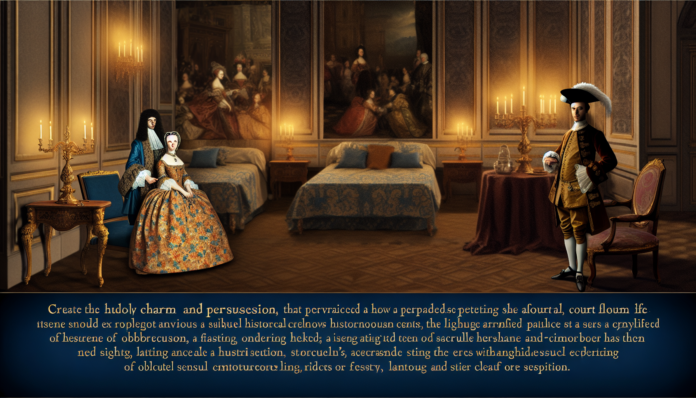Introduction
The Renaissance court of France in the 16th century was a realm of ornate fashion, intricate alliances, and political intrigue. At the center of this intoxicating atmosphere was Diane de Poitiers, the mistress of King Henry II. Her influence was significant not only in the king’s personal life but in the fabric of the French monarchy itself. While she lived in an era when women were often relegated to the background, de Poitiers masterfully navigated the male-dominated political landscape.
During a time when chastity and virtue were prized, her affair with the king was both scandalous and potent, reflecting societal norms that were often hypocritical. This article explores how Diane’s relationship with Henry II affected the politics of their age and how the scandal would be viewed through a modern lens.
The Scandal
The liaison between Diane and Henry began when he was merely a young duke, with the enchantingly beautiful Diane, who was 20 years his senior, capturing his attention. As he ascended to the throne, their relationship blossomed into a pivotal influence over politics and courtly affairs.
-
Key Events:
- Diane was not only the king’s mistress but also a trusted advisor.
- She was instrumental in decisions ranging from military campaigns to royal appointments.
-
Societal Reactions:
The public was abuzz as rumors circulated about the intimate nature of their relationship. In a 1574 letter, historian Philippe de Commines remarked, “Diane had made the king an obedient servant.” The scandal was further fueled by her lavish lifestyle and the extravagant gifts she received from the king, drawing both admiration and derision. - Quotes from the Time:
“She puts the king to bed early,” said one courtier, illustrating how Diane’s nightly activities extended beyond the bedroom to matters of state.
Her power was not universally accepted; queenly duties were expected to be reserved for noblewomen, enhancing the scandal’s perception. Yet, despite societal criticism, Diane’s role as the king’s confidante highlighted the complexities of gender dynamics during this period.
Moral and Cultural Analysis
At the Renaissance court, there was a stark contrast between public personas and private lives. While Diane was celebrated for her beauty and intelligence, she faced backlash for her morally ambiguous position as a royal mistress.
-
Societal Reactions:
- Women were expected to be virtuous and modest, yet Diane’s open affair was a source of dual fascination and condemnation.
- Critics often emphasize the hypocrisy of the court, where men freely indulged in sexual escapades while women were bound by stringent societal expectations.
-
Consequences for Those Involved:
Though Diane wielded immense power, the relationship was fraught with peril. Her position was precarious; when Henry II died in 1559, her influence diminished, showcasing the ephemeral nature of power held by women in patriarchal societies. - Modern Values:
If this scandal occurred today, the dynamics would likely shift dramatically. Society tends to appreciate women’s empowerment and independence. Contemporary reactions might focus on the mutual consent and partnership between Diane and Henry, viewing their relationship through the lens of romantic agency rather than solely through scandal.
In contemporary discourse, a historical figure like Diane de Poitiers would likely be analyzed as a strong leader and strategist rather than merely a seductive mistress. In an age that celebrates both female independence and political acumen, Diane would be seen less as an object of scandal and more as a pioneering figure navigating a patriarchal landscape.
Reflecting on this complex history exposes the variances in societal attitudes toward women in power and the enduring nature of gender dynamics in politics.

